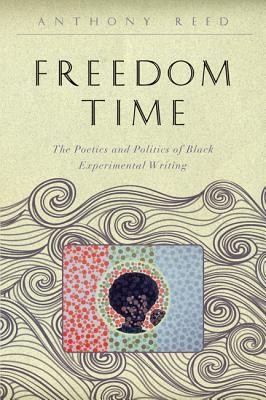
- We will send in 10–14 business days.
- Author: Anthony Reed
- Publisher: Johns Hopkins University Press
- ISBN-10: 1421421208
- ISBN-13: 9781421421209
- Format: 15 x 22.9 x 2 cm, minkšti viršeliai
- Language: English
- SAVE -10% with code: EXTRA
Reviews
Description
Experimental poetry and prose by black writers rejects traditional interpretations of social protest and identity formation to reveal radical new ways of perceiving the world.
Winner, 2016 William Sanders Scarborough Prize, Modern Language Association
Standard literary criticism tends to either ignore or downplay the unorthodox tradition of black experimental writing that emerged in the wake of protests against colonization and Jim Crow-era segregation. Histories of African American literature likewise have a hard time accounting for the distinctiveness of experimental writing, which is part of a general shift in emphasis among black writers away from appeals for social recognition or raising consciousness. In Freedom Time, Anthony Reed offers a theoretical reading of "black experimental writing" that presents the term both as a profound literary development and as a concept for analyzing how writing challenges us to rethink the relationships between race and literary techniques.
Through extended analyses of works by African American and Afro-Caribbean writers--including N. H. Pritchard, Suzan-Lori Parks, NourbeSe Philip, Kamau Brathwaite, Claudia Rankine, Douglas Kearney, Harryette Mullen, and Nathaniel Mackey--Reed develops a new sense of the literary politics of formally innovative writing and the connections between literature and politics since the 1960s.
Freedom Time reclaims the power of experimental black voices by arguing that readers and critics must see them as more than a mere reflection of the politics of social protest and identity formation. With an approach informed by literary, cultural, African American, and feminist studies, Reed shows how reworking literary materials and conventions liberates writers to push the limits of representation and expression.
EXTRA 10 % discount with code: EXTRA
The promotion ends in 21d.11:00:30
The discount code is valid when purchasing from 10 €. Discounts do not stack.
- Author: Anthony Reed
- Publisher: Johns Hopkins University Press
- ISBN-10: 1421421208
- ISBN-13: 9781421421209
- Format: 15 x 22.9 x 2 cm, minkšti viršeliai
- Language: English English
Experimental poetry and prose by black writers rejects traditional interpretations of social protest and identity formation to reveal radical new ways of perceiving the world.
Winner, 2016 William Sanders Scarborough Prize, Modern Language Association
Standard literary criticism tends to either ignore or downplay the unorthodox tradition of black experimental writing that emerged in the wake of protests against colonization and Jim Crow-era segregation. Histories of African American literature likewise have a hard time accounting for the distinctiveness of experimental writing, which is part of a general shift in emphasis among black writers away from appeals for social recognition or raising consciousness. In Freedom Time, Anthony Reed offers a theoretical reading of "black experimental writing" that presents the term both as a profound literary development and as a concept for analyzing how writing challenges us to rethink the relationships between race and literary techniques.
Through extended analyses of works by African American and Afro-Caribbean writers--including N. H. Pritchard, Suzan-Lori Parks, NourbeSe Philip, Kamau Brathwaite, Claudia Rankine, Douglas Kearney, Harryette Mullen, and Nathaniel Mackey--Reed develops a new sense of the literary politics of formally innovative writing and the connections between literature and politics since the 1960s.
Freedom Time reclaims the power of experimental black voices by arguing that readers and critics must see them as more than a mere reflection of the politics of social protest and identity formation. With an approach informed by literary, cultural, African American, and feminist studies, Reed shows how reworking literary materials and conventions liberates writers to push the limits of representation and expression.


Reviews